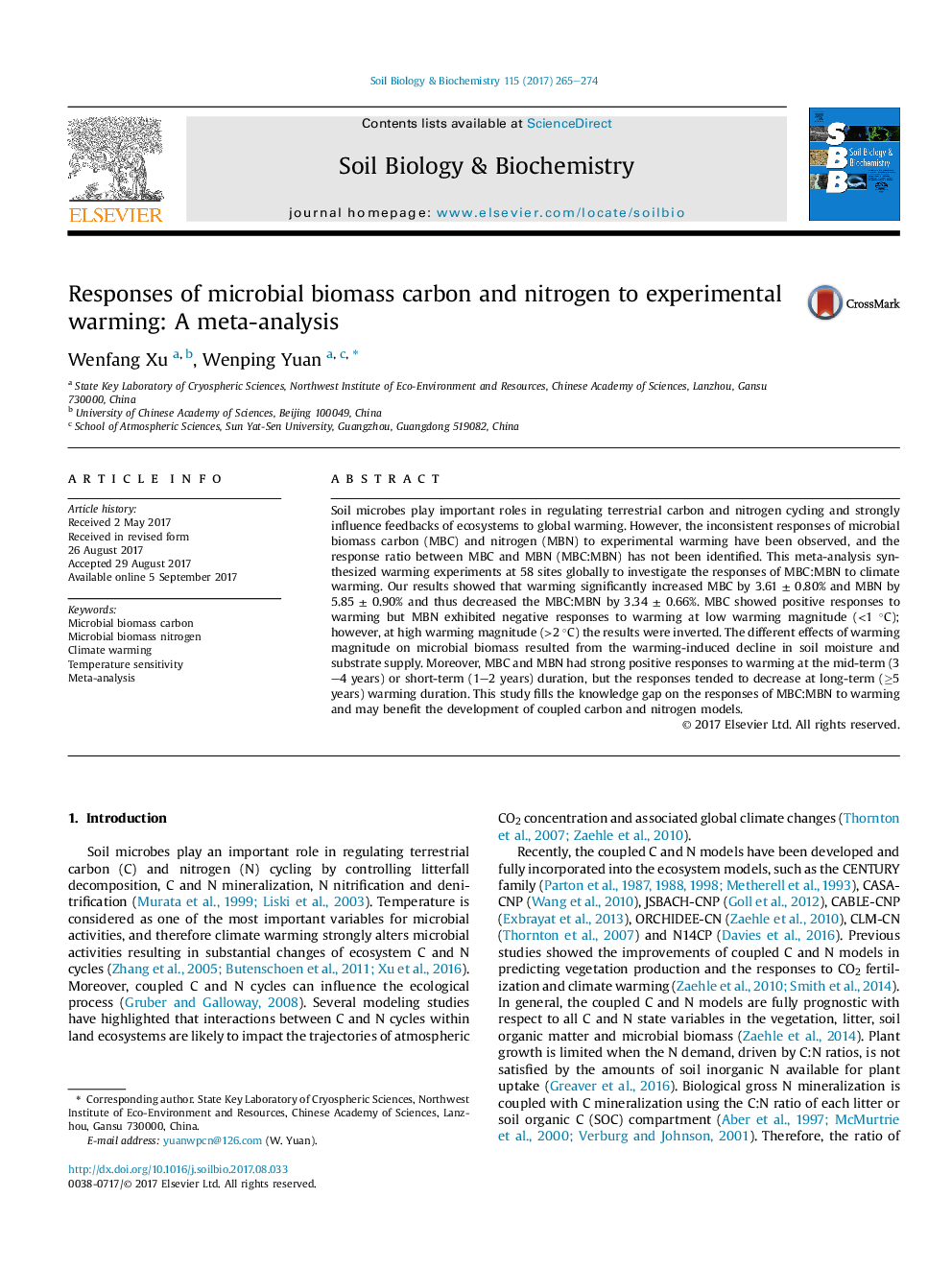| Article ID | Journal | Published Year | Pages | File Type |
|---|---|---|---|---|
| 5516248 | Soil Biology and Biochemistry | 2017 | 10 Pages |
â¢Warming significantly increased MBC and MBN, but decreased their ratio.â¢The responses of MBC and MBN decrease with warming duration.â¢Ecosystem model need integrate microbial responses to warming.
Soil microbes play important roles in regulating terrestrial carbon and nitrogen cycling and strongly influence feedbacks of ecosystems to global warming. However, the inconsistent responses of microbial biomass carbon (MBC) and nitrogen (MBN) to experimental warming have been observed, and the response ratio between MBC and MBN (MBC:MBN) has not been identified. This meta-analysis synthesized warming experiments at 58 sites globally to investigate the responses of MBC:MBN to climate warming. Our results showed that warming significantly increased MBC by 3.61 ± 0.80% and MBN by 5.85 ± 0.90% and thus decreased the MBC:MBN by 3.34 ± 0.66%. MBC showed positive responses to warming but MBN exhibited negative responses to warming at low warming magnitude (<1 °C); however, at high warming magnitude (>2 °C) the results were inverted. The different effects of warming magnitude on microbial biomass resulted from the warming-induced decline in soil moisture and substrate supply. Moreover, MBC and MBN had strong positive responses to warming at the mid-term (3-4 years) or short-term (1-2 years) duration, but the responses tended to decrease at long-term (â¥5 years) warming duration. This study fills the knowledge gap on the responses of MBC:MBN to warming and may benefit the development of coupled carbon and nitrogen models.
